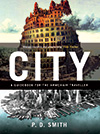Looking for gold
01 September 2007 | Ackroyd, Dr Dee, My Books, Reviewing, Science & literature | 5 comments
A few days ago I went on a walk with my partner through the water meadows not far from our home. It was a beautiful day, one of the few in recent months when it didn't rain. We let the course of the river guide our feet. The water beside us was as clear as crystal. Fish flickered among the green weeds.

Nietzsche once said that "only thoughts that come by walking have any value." I think he was right, about this at least. Things have a habit of falling into place while you walk.
Now that my book Doomsday Men has gone out into the world, I'm in writer's limbo. For the first time in four years I'm not writing a book. It's a bit unsettling. Although some say writing is a flight from reality, I don't feel I'm quite alive unless I'm writing something.
But although I'm not actually writing a book, I am dreaming books: I have several ideas in my mind for potential ones. One of these embryonic books has even got as far as a lengthy proposal. But even that is just a tentative beginning. I need to convince others - and perhaps even myself - that it is viable and can fend for itself in the real world. It can be mean out there, you know...
The proposal I have written is for a cultural history. Like much of my writing, it explores the way science and literature work together to inform our understanding of the world. I think the links between these two different fields are fascinating and important. (If you're interested, I wrote an article on this a while back and have just posted it here.)
But since leaving London I've also begun researching a historical novel. It's a new direction for me, but the more I find out about the late sixteenth century, the more this period intrigues me. The ideas, language and people are drawing me back through time into their world. It's certainly different from what I've been working on for the last few years. And perhaps that's part of the attraction. New faces, unfamiliar landscapes...
I've just been reviewing Peter Marshall's The Mercurial Emperor, a wonderfully rich biography of the Holy Roman Emperor Rudolf II (1552-1612). If you want to dip into the culture of this time, then Marshall's book is a great place to start. The characters that inhabit this world are extraordinary. Dr John Dee, for instance - the most celebrated magus of his era, an alchemist who conversed with angels and who spied for Queen Elizabeth I.

In 1584, Dee left his home by the banks of the River Thames for Rudolf's court in Prague. He shared his visions and unique wisdom with the Habsburg emperor for two years before rumours of necromancy forced Rudolf to banish him. Dee returned to England to find his home and the library he had spent forty years collecting had been destroyed by a mob that believed him to be a black magician. Undaunted, he continued his fruitless quest for the Philosopher's Stone and died without a penny to his name. Dee's real wealth lay in his thoughts and words.
Peter Ackroyd's superb novel about this magical character, The House of Doctor Dee (1993), sets an almost impossibly high standard for anyone tempted to explore this period in fiction. There's a wonderful passage in it about researchers who spend their lives among old books and in dusty archives: "we understand that we are at odds with the rest of the world: we are travelling backwards, while all those around us are still moving forward."
When I read writing as good as Ackroyd's, I ask myself why I even bother picking up a pen. How can I hope to equal such eloquence... Do other writers feel that too?
But perhaps writers are like alchemists. They are driven to discover some elusive, hidden knowledge, either about the world or about themselves. Pen and paper are their crucibles. Just add fire.
Whether they discover fool's gold or the real McCoy, only time will tell.

[also posted on TNB]

